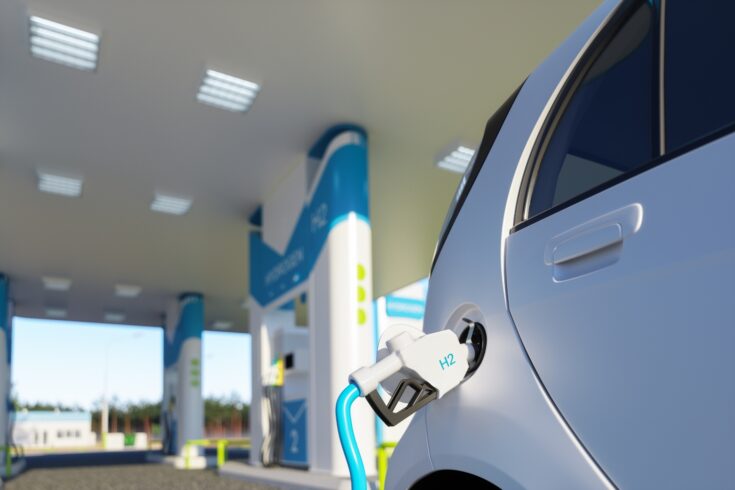New research projects will help enable the future take-up of greener, hydrogen-based fuels in the UK.
The Engineering and Physical Sciences Research Council (EPSRC) is to provide £615,000 over the next six months to fund two hydrogen research coordinators.
These senior researchers will be based at the University of Bath and Newcastle University.
They will lead multidisciplinary teams tackling the research and systems integration challenges blocking the wider use of hydrogen and alternative liquid fuels in the UK.
Reaching net zero greenhouse gases
Hydrogen and hydrogen-based, low-carbon liquid fuels, such as ammonia, are essential for the UK to reach net zero greenhouse gases by 2050.
Both coordinators will work for six months from 1 April 2022 and use this time to build high-impact, multidisciplinary, multi-site teams, with the aim of building longer-term research alliances.
The research challenges will be tackled by a team led by Professor Tim Mays at the University of Bath.
Professor Sara Walker at Newcastle University will lead a team to explore ways to achieve greater systems integration.
Engaging with policy makers and industry
Professor Mays will work with a group of special advisors to engage and partner with policy makers and industry from across the supply chain.
His team will engage stakeholders and use a “theory of change” process to map the greatest research challenges, as well as potential solutions to these challenges and their impacts.
They will focus in particular on the potential for these fuels to help decarbonise transport, electricity generation and domestic and industrial heating.
Providing connectivity and flexibility
Meanwhile, Professor Walker will focus on the role of these fuels in the net zero transition in providing connectivity and flexibility across the energy system.
Bringing expertise in energy systems integration, Professor Walker aims to analyse the landscape, the challenges, and the demand for these fuels, to identify viable investment priorities.
Her team aims to deliver a fundamental shift in the critical analysis of the role of hydrogen in the context of the overall energy landscape.
The team will use digital and virtual engagement across stakeholders to bring fresh perspectives on future hydrogen pathways.
Key role in decarbonisation
Dr Kedar Pandya, EPSRC Director for Cross-Council Programmes said:
There is a growing consensus that these fuels will play a key role in the deep decarbonisation of all sectors of the UK economy, as exemplified by the publication of the government’s 2021 UK hydrogen strategy.
Over the next six months, the hydrogen research coordinators will work across the UK to build an understanding, and galvanise expertise, in research and systems integration.
The focussed, multi-stakeholder plan they create will support the consideration of hydrogen as a key component of the UK’s energy mix and inform EPSRC’s future plans for an integrated, ambitious research and innovation programme working across the hydrogen value chain and its major use sectors in partnership with business.

